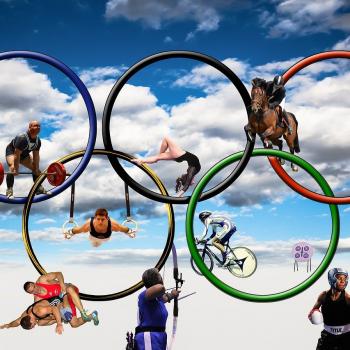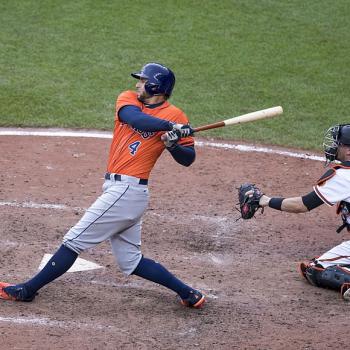When the new baseball season gets underway at the end of the month, managers will get to challenge certain calls, which will be reviewed by a high-tech outfit in New York. But managers will just get one challenge a game–two if the first one is upheld–though umpires can review plays after the sixth inning.
After the jump, an explanation of the new rule, including a list of the plays that are reviewable. Also an excerpt from famed sportswriter Thomas Boswell defending the changes on the grounds that it will make for more strategy on the part of managers and more second-guessing on the part of fans. What do you think?
From Wikipedia:
According to its terms, managers will be allotted one challenge per game (two if the first challenge results in an overturned call) while the umpiring crew chief will be empowered to initiate a review in innings 7 and later. The umpires will also be allowed to review a home run call at any time, even during innings #1-6. Once a call is challenged an umpire requests a video review, fellow umpires in New York’s Replay Command Center will watch video of the play in question using the “indisputable video evidence” standard when deciding whether to overturn a call. The following plays will be reviewable under the system:
- Ground-rule doubles
- Fan interference calls
- Boundary calls (managers may not, however, challenge home run or potential home run calls)
- Force plays at all bases, except whether a middle infielder touched second base during the attempt to “turn” a double play
- Tag plays on the base paths—whether a runner was tagged or whether the runner touched a base (an appeal is still required ahead of the latter)
- Fair/foul calls on balls hit into the outfield
- Catch/trap calls on balls hit into the outfield
- Time plays (whether or not a run scored prior to the third out)
- Whether a runner passed a preceding runner
- Scorekeeping issues, including the count, number of outs, score or substitutions
Judgment calls not specified above, including, but not limited to, pitches called ball or strike, obstruction, interference, infield fly rule and check swings are not reviewable.
From Thomas Boswell, MLB instant replay improves accuracy, adds strategy – The Washington Post (read the whole column, in which he gets into statistics about individual plays having an outcome on the game):
Baseball, the sport that adores the second-guess, now has a rich fresh arena for teams and fans to debate an entirely new area of strategy: What’s worth challenging, what’s not and how the heck do you decide?
Baseball has not had such a basic change in game tactics since — ever.
So far, nobody has more than an inkling of what’s smart, what’s dumb and who’s going to figure out the Challenge Edge first. Yummy.
MLB had a brilliant idea with its new system. It’s so perfect you wonder if it was an accident. A team is guaranteed only one challenge for a whole game — just one precious challenge. If you get that challenge correct, then you get a second challenge. But that’s all — there’s never a third.
Do you challenge a call in the third inning, when your chance of winning changes by just a half-percent, and risk a mistake that may haunt you the rest of the game? What if, in extra innings, you have no ability to demand a replay of a three-run play — perhaps a diving catch of a bases-loaded flyball with two outs in a 4-2 game that’s ruled a “trap” not a catch?
Under the new rules, all you can do is beg the crew chief to ask for a replay himself. He can. I suspect he probably would. But what if he didn’t? What if he thought he saw the play clearly? What if he hates your guts as much as Ron Luciano hated Earl Weaver? (It happens.)
In many close games this season, one team will be out of challenges while the other still has its challenge and, potentially, another one, too. That is going to feel like an advantage, whether it ever becomes a factor or not. Will it play on the minds of the teams? Is there added psychological value in holding back your challenge even if you have a base stealer incorrectly called out in the fourth inning? Or will the failure to challenge be seen as gutless?
While expanded replay will get more calls correct and make baseball seem up to date, its biggest value may be that the strategy around using the one guaranteed challenge will be seen as a major new element in a game that thought it was fully formed a century ago.












